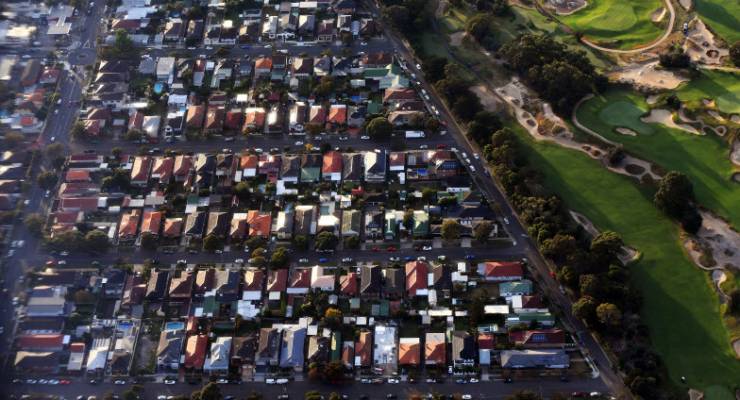
The much-hyped housing affordability package in the budget is not a silver bullet, Treasurer Scott Morrison has said, with the government opting against angering the base.
Negative gearing and capital gains tax for Australians remain unchanged as part of the 2017 budget, but the government has announced a very few policies to attempt to make it slightly easier to get into the housing market.
“It’s a comprehensive plan, it’s not a silver bullet – nor is it intended to be,” Morrison said in his budget lockup press conference.
Rather than, as had been expected, announcing a plan to allow first-home buyers to dip into their existing superannuation funds, Morrison said the government would introduce a policy to allow people to save an additional up to $30,000 or $15,000 per year into their super fund to go towards a home deposit. This would be on top of people’s existing super contributions. It would mean that it would be taxed at 15% rather than the marginal tax rate, and when the money is withdrawn, it is taxed at marginal tax rates less a 30% offset. This will be available from July 1, 2017. This will cost the government $250 million over the forward estimates, and the government will provide $9.4 million to the ATO to set the scheme up.
Older Australians wanting to downsize will be able to put in up to $300,000 from the sale of their homes as a top up on their superannuation. Morrison repeated the government’s stance that the main problem with housing affordability was that supply had not kept up with demand, and the government will be releasing some government land – starting with 127 hectares of surplus Defence land in Maribyrnong in Victoria (Bill Shorten’s electorate), which the government estimates could support up to 6000 new homes.
Foreign investors will be the only ones to face tougher housing restrictions as part of the package, with the government charging at least $5000 to foreign owners of residential real estate when that property is not occupied or genuinely available on the rental market for at least six months of the year. This change is immediate (the budget papers specify that the changes take effect from 7.30pm on Tuesday, May 9).
One potential cause for concern for improving housing supply will be the reintroduction of a 50% cap on the number of properties in a new development that can be bought by foreign investors through developer pre-approvals. The government says this will mean Australian buyers will have more access to dwellings, but it could limit developers’ ability to find the funding for their properties.
While capital gains tax and negative gearing remains unchanged for Australians, foreign investors will have their capital gains tax withholding rate raised from 10% to 12.5% from July 1 this year, and the CGT withholding threshold will be reduced from $2 million to $750,000.
There will be a national housing finance corporation established from July next year to offer long-term, low-cost finance to community housing providers for affordable housing. As a protection measure for investors, however, the government will provide direct deduction of rent from welfare payments of tenants in public and community housing providers.
The government will set up a National Housing Infrastructure Facility worth $1 billion and based on a similar UK model to help local governments assist with developing new homes and apartment blocks.
The government will also introduce a new National Housing and Homelessness agreement with the states and territories to ensure a supply of housing for those most in need. The agreement includes $375 million of government funding for housing for the homeless and those needing crisis accommodation. Private investors will be offered incentives to invest in affordable housing from the beginning of next year, with a 60% discount on capital gains if they provide their property at below-market rent and to tenants on low to moderate incomes managed by a registered community housing provider. The government will also establish a trust to get investors – both foreign and domestic – interested in investing in affordable housing.
People who claim travel expenses on their tax for inspecting, maintaining or collecting rent on their rental property will no longer be allowed to after July 1. The government has said this will increase revenue by $540 million over the forward estimates to 2020-21. Another $260 million in revenue is expected to be picked up by limiting the plant and equipment deductions investors can make on items in the property they own.








Crikey is committed to hosting lively discussions. Help us keep the conversation useful, interesting and welcoming. We aim to publish comments quickly in the interest of promoting robust conversation, but we’re a small team and we deploy filters to protect against legal risk. Occasionally your comment may be held up while we review, but we’re working as fast as we can to keep the conversation rolling.
The Crikey comment section is members-only content. Please subscribe to leave a comment.
The Crikey comment section is members-only content. Please login to leave a comment.